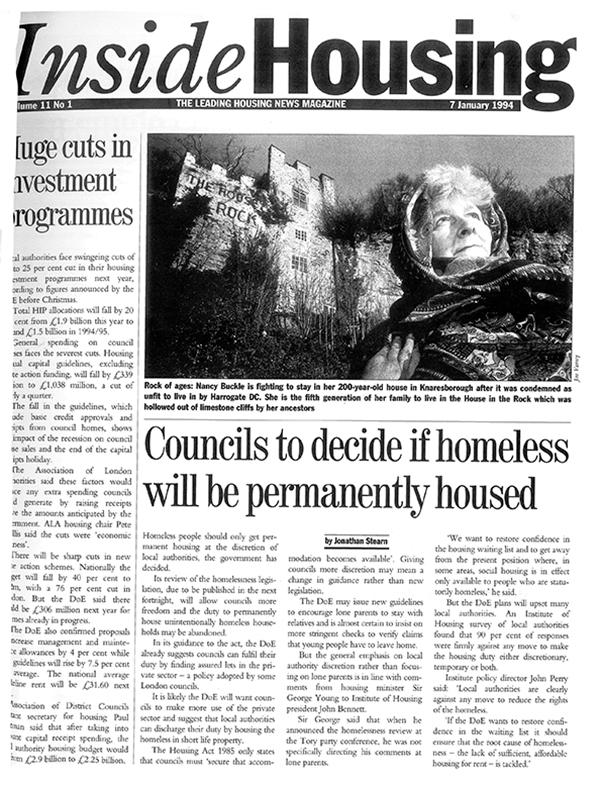You are viewing 1 of your 1 free articles
From the archive - Housing Corporation moves to liberalise regulation
Inside Housing looks back at what was happening in the sector this week five, 15 and 25 years ago
25 years ago
Following a review of homelessness legislation, the government ruled that homeless people should only get permanent housing at the discretion of local authorities.
The review, which was set to be published in the following weeks, would give councils greater freedom by removing their duty to permanently house unintentionally homeless households.
Inside Housing said it was “likely” that the Department of Environment would ask councils to make better use of the private sector and suggest they could discharge their duty by housing the homeless in “short-life property”.
A survey from the Institute of Housing found that 90% of local authorities were firmly against any move to make their housing duty either discretionary or temporary.
15 years ago
The Housing Corporation promised to liberalise its approach to regulation, potentially opening the way for housing associations to vastly increase their borrowing capacity.
The move meant that associations would be free to use their social housing assets as collateral against loans taken out to fund a wider range of activity.
In a consultation paper on the draft regulatory code, the corporation proposed to “relax our requirements on borrowing structures, thereby allowing associations to use social housing assets to secure funding for non-social housing activities, subject to tests”.
The proposal was welcomed by the National Housing Federation as a step towards enabling the sector to realise its financial potential. Policy officer Bob Wilson commented: “It will enable housing associations to consider doing more than they would otherwise be able to do. It should make the sector more attractive to lenders so funding could be that little bit easier.”
The guidance added that associations’ first recourse should be to fund diverse activities through non-social housing assets, but that they could borrow against social housing assets to fund other activity if it supported social housing activity.
Five years ago
Government proposals to tighten anti-social behaviour rules for social tenants sparked a row, with tenant groups saying it risked “stigmatising” social renters.
An amendment to the Anti-Social Behaviour Bill, which was making its way through parliament, was set to create a lower threshold to prove anti-social behaviour for social tenants than for private tenants. Under the amendment, social landlords would be able to obtain injunctions for behaviour causing “noise and annoyance”, rather than for behaviour causing “harassment, alarm or distress” – the standard other public authorities needed to prove.
Michael Gelling, chair of the Tenants’ and Residents’ Organisations of England, said: “Social housing tenants in this country are being classed as third-class citizens and all the legislation is stacked against us. One in five people live in social homes, but we are stigmatised as unemployable drug addicts and this compounds that belief.”










